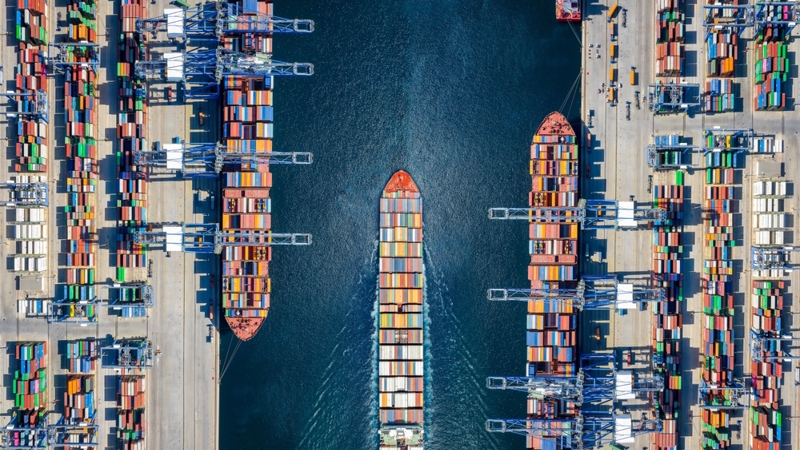
In 2019, the UK government published its Clean Maritime Plan, a national action plan to reduce emissions from shipping. Frontier led the economic research behind the plan.
Analysing the best way to cut emissions
Frontier was commissioned by the government to lead a consortium – including UMAS, E4tech, CE Delft and Aether – to undertake a programme of economic research that would underpin the Clean Maritime Plan.
The plan reflects the need to respond to the challenges of climate change and air pollution’s threat to public health, and identifies the clean growth opportunities associated with a transition to zero emission shipping.
Frontier’s team explored different approaches to cutting shipping emissions, including alternative fuels, behavioural approaches and technological solutions. We analysed the impact and cost of each option under several scenarios to 2050, to find the best route to zero-emission shipping. These scenarios do not reflect government policy but are intended to illustrate how the costs of achieving those ambitions could differ under alternative assumptions about the costs and availability of different low emission fuels.
Low or zero emission fuels will be vital, though must be alongside other complementary abatement measures
We began by projecting what would happen if policies and regulations stayed the same. Our research showed that efficiency improvements, driven by regulation and market forces, would be cost-effective and cut emissions by a certain amount – but not by enough to meet the UK’s targets.
We therefore assessed the most cost-effective ways to reach zero emissions. These came under three categories:
- Improving energy efficiency
- Capturing or treating emissions
- Using alternative fuels.
We found that the most cost-effective approaches will vary depending on ship type, fuel prices and policies. But of the three categories, it was clear that alternative fuels will play the biggest role.
Operational emissions of GHGs from UK shipping could, in our scenarios which include no available biofuels for the sector, be reduced to close to zero by 2050 if carbon values per tonne are applied to increase the cost of fossil fuel used by shipping so that it better reflects its climate change impacts.
Alternative low emission fuels will be essential to achieve the ambitions for zero emission shipping, particularly beyond 2030. With reasonable assumptions, we found ammonia and methanol, rather than hydrogen, are likely to be the most cost-effective options for most of the fleet because of the higher costs of onboard storage for hydrogen – though uncertainty over the costs and efficiency of fuels means flexibility will be needed.
The most cost-effective fuel and machinery combinations that achieve zero emission shipping do not, however, reduce NOx emissions below current levels because these combinations still heavily rely on internal combustion machinery which continue to produce NOx emissions even when used with alternatives to fossil fuels. Therefore, regulatory measures or other action may be justified to address NOx emissions.
Given the diversity of the shipping sector, and the ambitious nature of the target, a coordinated strategy combining fuels with efficiency improvements and supportive regulation will be necessary.
The impact of our work
Our analysis formed part of a suite of research we conducted for the government. This also included analysis of economic opportunities from low and zero-emission shipping, identification of barriers to uptake, and assessment of the demands on UK energy from port and shipping electrification.
Frontier’s work formed the foundation of the government’s Clean Maritime Plan. Given the significant impact of shipping on the environment – the sector is responsible for 11% of the UK’s nitrogen oxide emissions, and 7% of sulphur dioxide pollution – this represented a major step forward in planning for the UK’s transition to net zero.
If you’re interested in finding more about how we explored these issues and how we helped our client, please contact media@frontier-economics.com or call +44 (0) 20 7031 7000.








